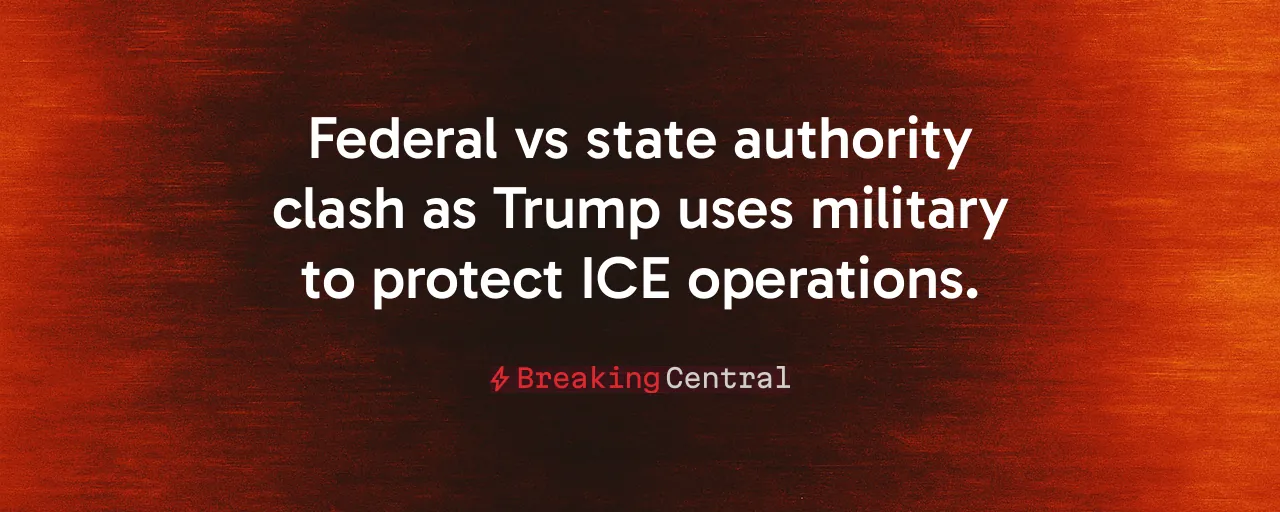Chaos in LA, A President's Response
Los Angeles faced a storm of protests, with shattered windows in Compton and Paramount signaling trouble. Local police struggled to keep up, and President Trump acted swiftly, sending 4,800 National Guard troops and Marines. For those who prioritize stability, this move felt decisive, a clear stand to protect federal law and restore calm.
Governor Gavin Newsom sees it differently, labeling the deployment a sweeping overreach that undermines California's authority. State sovereignty matters, no question. But when protests threaten federal operations, like ICE enforcement, can a president afford to stand idle? The evidence suggests no. Trump's action reflects a commitment to uphold national laws, even when local leaders hesitate.
The chaos wasn't apocalyptic, but it was real. Videos of looted stores and damaged property showed a city on edge. Trump's order, grounded in 10 U.S.C. §12406, aimed to shield federal personnel and facilities. Is this the tyranny Newsom decries? Or is it a president refusing to let disorder prevail?
Newsom's pushback, draped in legal arguments, seems more about resisting federal immigration policy than protecting state rights. California's sanctuary policies fuel these tensions, creating the very unrest Trump seeks to address. When a governor chooses ideology over order, what choice does a president have?
Opponents of the deployment, including Governor Newsom, cry foul over the $134 million cost and claim the move violates the Constitution. These points deserve scrutiny, but they sidestep a larger truth: federal law stands firm, even when a state disagrees.
The Legal Line: Who Holds the Power?
Is Trump's deployment lawful? The Constitution empowers the president to federalize state militias when federal law faces obstruction. Section 12406, backed by cases like Eisenhower's 1957 Little Rock action, supports this authority. Courts, from 1827's Martin v. Mott to 1990's Perpich v. DOD, grant the president broad discretion to define threats like 'rebellion.' Newsom argues LA's protests, with 44 arrests and limited damage, don't meet that threshold, but his case isn't ironclad.
Newsom insists he needed consultation, citing statutory norms. While governors typically get notice, the law doesn't give them veto power. Trump's direct orders to California's adjutant general mirror Eisenhower's tactic in Arkansas. Supreme Court rulings suggest Newsom's lawsuit may falter, though it could force procedural changes.
The Posse Comitatus Act limits federal troops to protecting federal assets; they do not police civilians. Trump's forces stick to this role, guarding ICE agents and buildings. This careful scope undercuts claims of authoritarianism, showing an administration working within legal boundaries.
The $134 million price tag for troop logistics raises eyebrows. Yet, the economic toll of unchecked unrest, including lost businesses and shaken communities, far outweighs it. Newsom's focus on costs ignores how California's policies contribute to the need for federal action.
Balancing State Autonomy and National Duty
This clash extends beyond LA, centering on federalism itself. States value their independence, a principle rooted in the Tenth Amendment and cherished by those who defend limited government. When Biden considered federalizing the Texas Guard in 2024, Republican leaders decried it as an assault on state rights. So why back Trump now? The difference lies in purpose. California's resistance to immigration enforcement actively undermines federal law, unlike Texas's border efforts.
Newsom frames Trump's move as a power grab, but he overlooks a key point: states cannot selectively ignore federal mandates. Immigration law is a national responsibility, not a matter of local discretion. When local efforts fall short, the president acts to uphold it, a duty that transcends state pride.
Federalizing the Guard does strain California, diverting troops from wildfires or border missions. In 2023, 32,000 Guard members battled blazes, and Cal Guard's drug interdiction is vital. The answer lies in better federal-state collaboration to balance these needs, rather than defiance.
A Stand for Law or a Risky Precedent?
Newsom warns of authoritarianism, citing the 2020 BLM protests when 18,000 state-controlled Guard troops managed unrest. But LA's 2025 protests target federal authority—ICE, federal buildings—making them a direct challenge to national law. Trump's response fills a void Newsom leaves open.
Could this set a bad precedent? If Trump federalizes the Guard now, future presidents might follow suit for less justified reasons. Think tanks like the Cato Institute caution against normalizing executive overreach. Their concern is valid, but letting states nullify federal law is a greater threat. Congress needs clearer statutes, not Newsom's outright rejection.
Polarization deepens this divide. Pew data shows most Americans distrust the opposing party, and this standoff—Republican president versus Democratic governor—fuels the fire. Yet governance rises above partisanship. Trump's action, though imperfect, defends the rule of law over political games.
Trump's deployment, supported by legal precedent and driven by real threats, holds up under scrutiny. Newsom's objections, while appealing to state pride, falter against the need for national unity. Federal authority serves as the foundation of a cohesive nation.
This debate centers on ensuring no state can sidestep the laws that bind us. Trump's stand, for all its costs, affirms that the rule of law outweighs political posturing. For those who value order, that's a principle worth defending.
